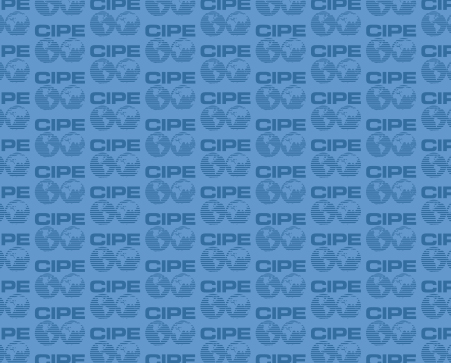
A precipitous fall in oil prices in the last seven months has led many oil-producing nations to reconsider their incredibly costly fuel subsidies, which drain government budgets and distort the economy. Yet Algeria, which relies on oil for most of its government revenue, has taken a different path: freezing public-sector hiring and investment while keeping its subsidies in place – a decision which may only increase its dependence on oil exports in the future.
On Christmas Eve of 2014, Algerian Prime Minister Abdelmalek Sellal announced that, in response to the drop in oil revenue and impending economic crisis, the administration would freeze public sector hiring and new state investment projects. However, the Prime Minister and other officials have insisted that, for the moment, fuel subsidies will remain in place, keeping domestic fuel prices at some of the lowest levels on the African continent – 25 cents per liter, or about 95 cents per gallon.
“The administration is making decisions based on the outlook of the global oil market and on Algeria’s middle- and long-term capacity to support an economy fueled by hydrocarbons,” said Slim Othmani, President of CIPE partner Cercle d‘Action et de Réflexion autour de l’Entreprise (CARE), in a recent interview.
In other words, this approach will only deepen the country’s dependence on oil and gas revenues. Not only is this a gamble, it also misses an ideal political moment to recalibrate the fuel subsidies. The government could use the pressure of outside economic forces to make the argument for internal change, and the natural consequences of dropping oil prices could bring home the reasons for reform. Plus, cutting subsidies when fuel is cheap will make the process less painful to consumers.
But is the government willing to take that step?
For years, Algerian experts have stressed the need for diversification and the easing, or total removal, of fuel subsidies. In 2013, the country’s hydrocarbon sector, which is mostly state-owned, generated almost $64 billion in revenue, representing about 60 percent of government revenues and almost 100 percent of the country’s total export earnings.
But much of that revenue goes right back into costly subsidies on the very products the hydrocarbon sector produces. The IMF estimated that, in 2012, subsidies on fuel products cost the state almost $22 billion. This comes in addition to government subsidies on housing, agricultural products, imported consumer goods, and more.
The negative consequences of artificially low fuel costs range from encouraging smuggling to driving up CO2 emissions. But there are two bigger processes that could distort the economy even further.
First, by keeping domestic gas prices artificially low – below operational costs, even – subsidies drive up domestic consumption of gasoline. For a country with such large energy reserves, this is not always a problem in the short term; however, Algeria is slowly running out of oil. Estimates of Algeria’s energy reserves have remained constant over the last decade. Discovery of new oil fields has slowed drastically, offshore drilling has yet to begin, and tapping into shale gas reserves through fracking is a contentious issue among Algerians.
If the oil reserve stays constant or shrinks and domestic consumption of gasoline increases, Algeria’s hydrocarbon export revenues will continue to fall. To see this dynamic in action, one need look no further than nearby Egypt, a longtime fuel subsidizer and the largest non-OPEC oil producer in Africa, which must now import oil to meet domestic demand.
The second danger subsidies pose to Algeria’s economy can be summed up in one word: dependence. To keep the petrodollars coming in – and to make sure fuel subsidies can continue – the Algerian government invests heavily in the oil and natural gas industries. In the long term, this only reinforces the dominance of Algeria’s hydrocarbon sector and the underdevelopment of all other sectors of the economy.
Focusing public investment on any one sector can result in inefficiencies, but a dominant energy sector in particular creates incentives that have far-reaching, often negative effects.
Take, for instance, Algeria’s agricultural sector, which has gone through several top-down attempts at reform, yet still cannot support the needs of 40 million Algerians – meaning Algeria must import food, including significant amounts of grain.
Pouring money into a capital-intensive sector like hydrocarbons can also potentially “crowd out” investment in more labor-intensive sectors – agriculture, tourism, transport – that could put Algerians to work at a time when youth unemployment is hovering at about 25 percent. The hard currency brought in by oil exports also distorts exchange rates, making non-oil exports more expensive and suppressing industrial development (the so-called “Dutch disease“).
As CARE’s Othmani remarked, “Here we have a country that has potential in its people, its size, and its natural resources. All of this working together could create a very different country from what we have today.”
Oil may be poised for a rebound – an OPEC forecast released Monday predicted higher demand for oil in 2015 coupled with lower supply from non-OPEC countries. But, as policymakers in several oil-producing countries – Indonesia, India, Kuwait, Oman, Malaysia – have already realized, the time to reduce or remove heavy fuel subsidies is while prices remain low and citizens feel less of an impact on their wallets.
Is economic reform in Algeria possible without dealing with blanket fuel subsidies? The longer the Algerian government keeps them in place and develops its hydrocarbon sector to the detriment of all else, the more likely Algeria will remain vulnerable to fluctuating energy markets. And ultimately it is everyday Algerians who will pay the price.
Margaret Bohlander is a Program Assistant for the Middle East & North Africa at CIPE.
Published Date: February 19, 2015